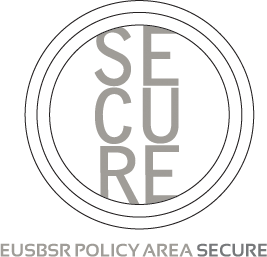The civil security presence at the 4th Annual Forum of the EUSBSR was not limited to the Forum’s Project village and back-to-back meetings. Macro-regional cooperation within the field of civil security also took the main stage as Helena Lindberg, the Director General of one of PA Secure’s coordinators, the Swedish Civil Contingencies Agency (MSB), participated in the ‘Macro-Regional Strategies — to Boost Smart and Sustainable Growth’ Plenary session.
In her intervention, Lindberg noted the interconnected and trans-boundary nature of modern day societal risks and stressed the importance of addressing them together through macro-regional cooperation. Threats such as extreme weather, viruses, and spills of hazardous substances are only a part of the challenges we face jointly on a daily basis.
“Most of our major risk scenarios today and in the future involve critical flows of different kind – flows that reach both across sectors and across national borders.” – Helena Lindberg.
These risks are not limited to our region, their impact is globally acknowledged. The positive effect proactive civil security measures have on smart and sustainable growth have for example been underlined by the UNISDR Post-2015 Framework for Disaster Risk Reduction, which stresses the importance of disaster risk reduction investments for economic growth and sustainable development. One of priority area Secure’s objectives is to contribute to sustainable growth by actively cooperating and sharing experiences and know-how with civil security stakeholders, both in our region as well as with other regional frameworks, such as the EU Strategy for the Danube region.
Increasing interoperability throughout the region
Lindberg noted that even though we share similar risk scenarios, we tend to operate differently. This difference can be noted through multiple aspects, including our perceptions, organisation, approaches, and terminologies. Aware of these challenges, priority area Secure works towards increasing the interoperability of civil protection authorities in the region, as well as supporting existing cooperation networks and building new ones. In this context, Lindberg highlighted the Baltic Leadership Programme as an example of an initiative designed to overcome cultural differences by enabling active cooperation and network-building between future leaders in civil protection.
“I am convinced that this initiative can serve as a model for other emerging macro-regions.” – Helena Lindberg.
Not only does the Baltic Leadership Programme strengthen our capacity to cooperate proactively and efficiently across borders- it also has the potential to demonstrate the positive impact of the EUSBSR in the Baltic Sea region, as well as our region’s ability to produce effective initiatives capable of influencing trans-boundary cooperation in other regions. Take a look at Lindberg’s intervention here above or visit the EUSBSR’s Youtube channel for the full coverage of the session.

